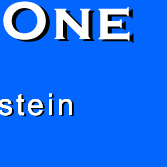 |
 |
 |
 |
 |
 |
 |
 |
 |
October 23, 2000
|
POST SCRIPTFor all of those who are too lazy to go over to the debate in the House of Lords and don't believe me, I've reproduced the article for you. Lord McIntosh, is the British government minister : Lord Berkeley asked Her Majesty's Government: What action they are taking to encourage all European Union member states to introduce a tax on aircraft fuel so that aircraft pay the same level of charges for fuel as motorists. Lord McIntosh of Haringey: The Government support on environmental grounds the removal of the international ban on the taxation of aviation fuel. We shall continue to pursue the issue in the forum of the International Civil Aviation Organisation. The Financial Secretary to the Treasury has made it clear that the Government have no plans to take advantage of the European Commission's proposal to allow member states to opt to tax aviation fuel used on domestic flights and on flights within the EU. Lord Berkeley: My Lords, I am grateful to my noble friend for that full answer. I declare an interest as president of the Aviation Environment Federation. Does my noble friend agree that aviation pollution is a serious environmental problem that causes 3.5 per cent of all global warming? Aviation fuel is currently untaxed throughout Europe. Does he agree that it is odd for the Treasury to turn down the opportunity of a good tax? Will he encourage his European colleagues to take the issue forward as quickly as possible so that the polluter can be made to pay in the air as well as on the ground? Lord McIntosh of Haringey: My Lords, I certainly agree that aviation fuel is a significant contributor to global warming and I have no reason to doubt my noble friend's figures. However, an independent study commissioned by the European Union confirms that taxing aviation fuel only in the EU would have very little environmental effect and would discriminate against British and European carriers. Earl Ferrers: My Lords, would the Minister care to speculate on the cause of the charming and noble Lord, Lord Berkeley, having momentarily taken leave of his senses? Taxing air fuel at the same rate as car fuel would be wildly unpopular and would put up the cost of air travel preposterously. Lord McIntosh of Haringey: My Lords, I do not think that my noble friend Lord Berkeley has taken leave of his senses. He has asked a responsible question that relates to the environmental issues and to equity between countries. As a point of fact, we are bound by the 1944 Chicago Convention and subsequent protocols that forbid us from taxing aviation fuel. That is the basis on which we have to work until we have persuaded countries internationally to tax aviation fuel. Lord Trefgarne: My Lords, I declare an interest as the owner of a small aeroplane that uses aviation gasoline, which is taxed at the same rate as motor car gasoline. Is the Minister satisfied that that is an appropriate arrangement, or does he hope to offer me some relief? Lord McIntosh of Haringey: My Lords, any change to relative taxation of avgas, which the noble Lord uses, and the kerosene that jet engines use would be towards higher taxation for jet engine fuel rather than lower taxation for petrol engine aircraft. Lord Monson: My Lords, does the Minister agree that if the EU alone were to tax aviation fuel, the Swiss in general and Swissair in particular would be in seventh heaven? Lord McIntosh of Haringey: My Lords, I imagine that the same would be true of Liechtenstein, Monaco and San Marino. I hope that I have made it clear that there are significant disadvantages in Britain or the European Union going it alone. Baroness Thomas of Walliswood: My Lords, what mechanism might be used to achieve the international agreement on taxing fuel that we require? Lord McIntosh of Haringey: My Lords, I hoped that I had dealt with that in my first answer. We are making representations through our membership of the International Civil Aviation Organisation towards that end. Lord Saatchi: My Lords, when he assesses the impact of a possible new fuel tax, does the Minister agree that it would be helpful for us to know the base level of taxation to which any new tax might be added? I thank him for his recent letter in which he attempted to shed light on his reference to "the undoubted fact that the tax burden is falling".--[Official Report, 28/7/00; col. 758.] However, there is a slight difficulty with his letter, because it makes no reference to the tax burden. When might he let us have a proper answer to the question? Lord McIntosh of Haringey: My Lords, I was about the congratulate the House on asking supplementary questions that related to the original Question, which was about aviation fuel tax. I am sorry that the noble Lord, Lord Saatchi, has let the House down. Please Support Antiwar.comA contribution of $50 or more will get you a copy of Ronald Radosh's out-of-print classic study of the Old Right conservatives, Prophets on the Right: Profiles of Conservative Critics of American Globalism. Send contributions to Antiwar.com or
Contribute Via our Secure Server or
|
